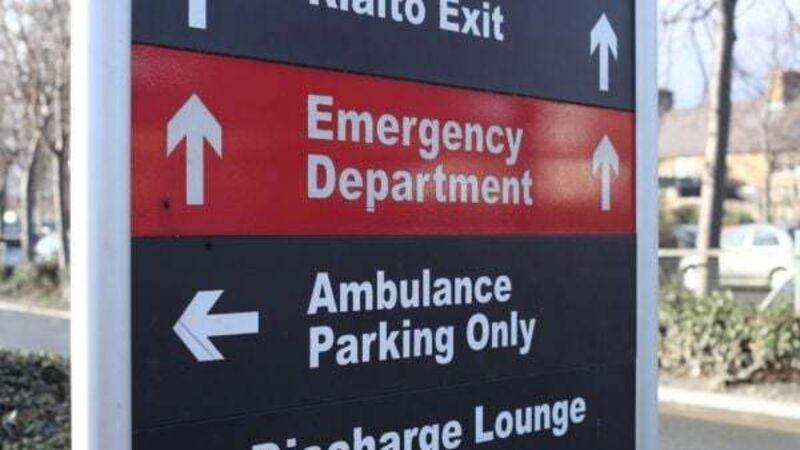Over one third of ED visits avoidable, study finds

James Cox
One in three (34 per cent) patients presented to emergency departments on average twice in the last 12 months for non-life-threatening illnesses despite alternative urgent care options being available, a study has found.
New research carried out in recent weeks amid the Emergency Department (ED) surge in acute hospitals reveals that Irish people attended their local hospital ED at least once in the past year for minor illnesses or injuries.
These could have been treated quickly and appropriately by their GP, pharmacists or local urgent care clinic, according to Laya Healthcare.
Over six in 10 (61 per cent) of those who presented to ED with injuries and illnesses they describe as "minor and non-life threatening" attended during daytime hours (10am-10pm, Monday - Friday) "at which time options such as the Laya Health and Wellbeing clinics are open in Dublin, Galway and Limerick".
Four in 10 people (44 per cent) are unaware of any other urgent care options for minor injuries and illnesses apart from busy EDs with this climbing to half of younger people aged 25-34 years.
Only one in four (24 per cent) would consider their local public injury clinic if they had a minor injury.
A sense that they would be seen quicker in their local ED (43 per cent) and proximity to home or work (23 per cent) were the top reasons why those with minor injuries chose to go to their local hospital.
Delaying medical care
According to Laya Healthcare’s research, three in 10 (29 per cent) admit that they have avoided seeking medical treatment due to fear of long delays in their local hospital, with half of those surveyed saying they feel “frightened” by the wait times for urgent care in Ireland.
Dr Lauren Brand, an urgent care physician who works in the Laya Health and Wellbeing Clinic in Dublin, said: “Education is key to reducing the burden on acute hospitals for minor injuries and illnesses that should be treated appropriately elsewhere. When people get sick or sustain an injury, they’re vulnerable and scared.
"We want to help educate people on where to go for different injuries and illnesses and what the best path to care is – whether that’s self-care at home, or when to go to the local pharmacy, GP or urgent care.
"All these paths should be considered before heading to the ED. Of course, if the injury or illness is suspected to be serious, that’s when you should consider calling an ambulance or going to the local hospital.”









